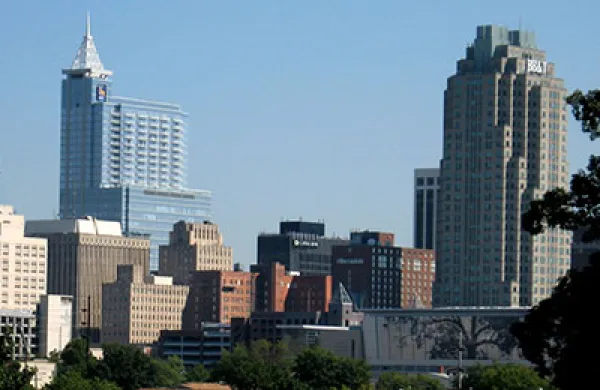It was the most anticipated sovereign default in history, and at $132 billion, the biggest.
By Jenny Anderson
January 2002
Institutional Investor Magazine
But now that Argentina has gone from on the brink to off the cliff, what impact will it have on foreign investors, banks and 32 million Argentineans?
Forewarned, in this case, was forearmed. Argentina's default took place in slow motion over roughly 18 months, giving foreign investors and bankers ample time to hedge their risks as conditions grew progressively grimmer after four years of grinding recession. Indeed, the long-unfolding crisis spawned a new industry: so-called default swaps, a hedging tool for investors in Argentinean bonds. Peddlers of these safety devices - generally, major sell-side institutions - must pay the buyers their bonds' par value less the recovery value upon default. "There is financial exposure on Wall Street," notes Morgan Stanley Asset Management portfolio manager Amer Bisat.
The only people who appear to have discounted the possibility of default and economic collapse until the very last minute were Argentinean politicians. The upshot was confusion that quickly degenerated into chaos. Starting late last month the country had: suspended principal and interest payments on its foreign debt; forced out one president and gone through three more before settling (for now) on a fifth, all in two weeks; scheduled spring elections only to cancel them; introduced a bizarre "third currency" called the argentino, then promptly scrapped it amid speculation about devaluation; and promised to stick to a zero-deficit law, which frustrated Argentineans are bound to reject.
The resignations, in disgrace, of once-exalted Economy Minister Domingo Cavallo and President Fernando de La Rúa, following the first round of street riots that killed 28 people, were "much expected," says Bank of America Latin America fixed-income strategist Dan Dorrow. "Banks have been positioning themselves accordingly," by setting aside reserves and aggressively reducing their Argentina exposure. Dorrow doesn't expect the default's impact to be severe.
The short and not so sweet stint of de la Rúa's successor, Adolfo Rodríguez Saá, was not so predictable: He quit after a few days amid further riots, blaming back-stabbing within his Peronist Party. But the president-for-a-week scenario fit an all-too-familiar pattern of Argentina's leaders being utterly unable to get their political or economic house in order.
Preemptive prudence was thus the wisest policy for foreign investors and banks. J.P. Morgan Chase & Co. was able to reduce its Argentinean exposure by $500 million during the first three quarters of last year, to about $900 million (only about $200 million of which is sovereign debt). On December 19, before the formal default, FleetBoston Financial Corp., which has $9 billion in assets - mostly corporate loans - and 138 branches in Argentina, announced that it would take a $150 million charge to cover losses on loans and securities, wiping out $145 million in projected operating earnings from the country.
Two other U.S. banks have significant exposure to Argentina. Citigroup has an 89-branch network there and earns 2 percent of its profits from the country but reportedly holds little of its sovereign debt. Bank of America has some $900 million in Argentinean loans outstanding. But even though Argentina's default "is bad and ugly," says Diana Yates, a bank analyst at A.G. Edwards, "materially speaking, it's not as bad as everyone was expecting. You won't see a replay of what happened in the late 1980s now."
In Europe the fallout has been mostly a Spanish affair, reflecting the heavy exposure of the country's two biggest banks, Banco Santander Central Hispano and Banco Bilbao Vizcaya Argentaria. At BSCH, Argentina accounts for 5 percent of profits, 5 percent of deposits and 4 percent of loans. The bank set aside a special reserve of E1 billion ($883 million) in the fall and has limited its risk by reducing its Argentinean securities portfolio by $1.35 billion, to $905 million. "Both BSCH and BBVA are in a position to handle the situation in Argentina," says María Cabanyes, Spanish banking analyst at Moody's Investors Service in Madrid.
How much of their money bankers and foreign investors can expect to get back won't be known for several months. Erstwhile acting president Rodríguez Saá's suspension of foreign debt payments on December 23 drew hearty congressional applause; he said he would not even discuss repayment terms until after the now-canceled March 3 elections to pick a president to serve out the two remaining years of de la Rúa's term.
The swaggering Rodríguez Saá might have fancied that he would be the one ultimately presiding over those debt talks as president. No longer, it appears. After he'd introduced the ill-starred argentino and a cabinet full of his Peronist cronies, protests erupted again. This time the rioters set fire to the Congress building. By New Year's Day, Rodríguez Saá had resigned, the de facto president - the head of the Senate - had also resigned, and Congress was once again scrambling to find someone to captain Argentina's sinking ship.
On January 2 it appointed Peronist Eduardo Duhalde, 60, a senator from, and former governor of, Buenos Aires province. Duhalde had led an unsuccessful presidential campaign against de la Rúa in 1999. Ironically, he is now slated to finish de la Rúa's term, which extends through December 2003.
Duhalde is likely to respect the default Rodríguez Saá set in motion, although he has suggested he will seek to restructure the debt. He is a populist; Argentina is bankrupt. Discussions between Argentina and its foreign creditors are apt to be "very harsh," warns John Welch, chief economist for Latin America at Barclays Capital in New York. Adds James Barrineau, vice president for emerging-markets research at Alliance Capital Management: "The new government will have to figure out what to do with the debt. That will involve a severe haircut and a two year or more cessation of interest payments." Barrineau also notes, "The conventional wisdom is that everyone is underweight or doesn't own Argentina, but the bonds are out there - someone owns them."
Today's crisis is rich in antecedents. In 1989 similar rioting broke out over wild hyperinflation and gross fiscal mismanagement, leading to the ouster of president Raul Alfonsín and his replacement by Carlos Saúl Menem and a Harvard-educated economy czar - Cavallo. Their innovative solution to Argentina's rocketing prices (at one point inflation hit 5,000 percent) was a currency board: To prevent the government from recklessly printing money, each peso issued would be backed by one U.S. dollar. The mandate was embedded in the constitution to prevent political tampering. At first, the so-called convertibility regime worked marvelously. Inflation tumbled, and Argentina prospered. The International Money Fund basked in the reflected glow.
But in time convertibility proved to be too rigid. Russia's 1998 default and the resulting global debt crisis drove that fact home. Buenos Aires had no means of stimulating its slumping economy with easy money, and the dollar-peso link locked the country into an overvalued exchange rate that priced its exports out of markets. Cavallo, who had left office in 1996, returned in March 2001 with considerable fanfare, as the country's great savior - a Juan Perón of the peso. In effect, he declared an end to the crisis based on his presence alone. And the markets half-believed him.
Nevertheless, Argentina languished, beset not only by its homegrown troubles but also by the gathering global recession. The de la Rúa government's demise came quickly. On December 1, to halt a bank run, Cavallo announced sweeping capital controls that included a monthly limit of $1,000 on withdrawals from direct-deposit accounts. Businesses resorted to IOUs, and Argentineans literally stuffed cash under their mattresses. On December 3 the IMF said it would not disburse $1.3 billion in aid because Argentina couldn't balance its budget. Respected Finance Secretary Daniel Marx resigned.
Then on December 17 the government passed a budget that called for a nearly 20 percent cut in spending. Within days protesters began looting supermarkets and pelting the Economy Ministry with eggs. A discouraged but defiant Cavallo bowed out three days later. Having lost his immunity as a senior government official, he promptly faced charges of participating in arms smuggling. Now he can't even leave the country "to rest," as he requested of the court. "This is it for Cavallo," says one American fund manager.
Of course, bad economics can make good politics. President Duhalde is a strong-willed caudillo, a type for which Argentineans have a weakness. Already he has announced that Argentina's experiment with the free-market model has failed. If his solutions work, his reward will be election in 2003.
As Cavallo himself told Institutional Investor last July, "To govern a country is not the work of technocrats. It is the work of a public man, a political man, because governing a country means that every day you adopt political decisions."
Let's hope the next leaders adopt better ones.





